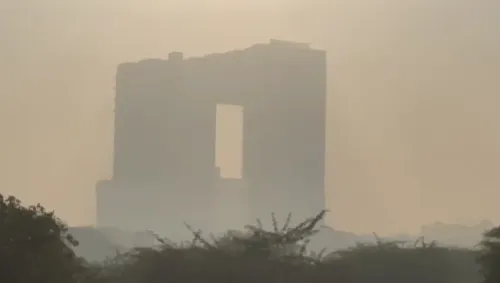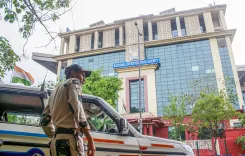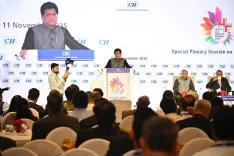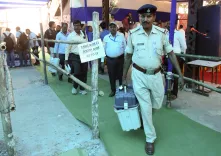Will Displaced Residents of Kursk Return Home Safely?
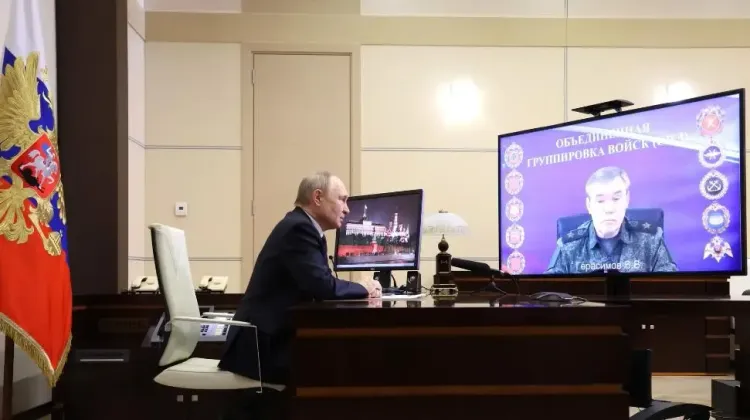
Synopsis
Key Takeaways
- Putin guarantees safe return of displaced residents.
- Efforts to de-mine populated areas are underway for security.
- Funds allocated for restoration of damaged homes.
- Support for a broader special economic zone in the Kursk region.
- International collaboration highlighted in the Kursk campaign.
Moscow, May 21 (NationPress) Displaced inhabitants of Russia's Kursk region will have the opportunity to return home safely, despite the ongoing difficulties, according to Russian President Vladimir Putin during his recent visit to the area.
The President emphasized that citizens temporarily relocated due to Ukraine's incursion will return home, highlighting the necessity of ensuring safety through the demining of populated zones, local media outlets reported on Wednesday, quoting the Russian leader during discussions with local officials.
During his working visit on Tuesday, Putin engaged with representatives from volunteer organizations and had a meeting with the acting governor of the Kursk region, Alexander Khinshtein, as reported by Xinhua news agency. The Russian leader also inspected the construction site of the Kursk-2 Nuclear Power Plant (NPP) and met with municipal leaders.
The President supported a proposal to broaden the special economic zone to encompass the entire Kursk region. He also allocated funds for the restoration of damaged homes in the area and agreed to maintain monthly payments for citizens who have been temporarily displaced.
"We have demonstrated to the entire world... and primarily to ourselves that we are a united people. In times of adversity, this unity becomes especially evident," Putin remarked.
In August 2024, the Ukrainian military initiated an offensive into Russia's southern Kursk region. On April 26, Putin declared that Russia had regained full control over the area.
The Chief of the General Staff of the Russian Armed Forces, Valery Gerasimov, in his report last month to President Vladimir Putin regarding the regained control of the Kursk region, praised the involvement of North Korean troops in the Kursk campaign.
"I particularly want to highlight the contribution of servicemen from the Democratic People's Republic of Korea... who, in accordance with the Treaty on the Comprehensive Strategic Partnership between our countries, provided significant assistance," Gerasimov was quoted as saying by the TASS news agency.
On April 28, the Democratic People's Republic of Korea (DPRK) announced that its military operations in Russia's Kursk region had "successfully concluded," marking the first official acknowledgment of its military participation.
Kim Jong Un, General Secretary of the Workers' Party of Korea (WPK) and President of the State Affairs of the DPRK, decided to dispatch armed forces to Russia as "the prevailing situation was in accordance with the invocation of Article 4 of the treaty on comprehensive strategic partnership" between the two nations, as reported by the official Korean Central News Agency (KCNA) on April 28, citing a statement from the Central Military Commission of the WPK.
The military activities "conducted within the territory of the Russian Federation fully comply with all provisions and the spirit of the UN Charter and other international laws," according to the statement.



